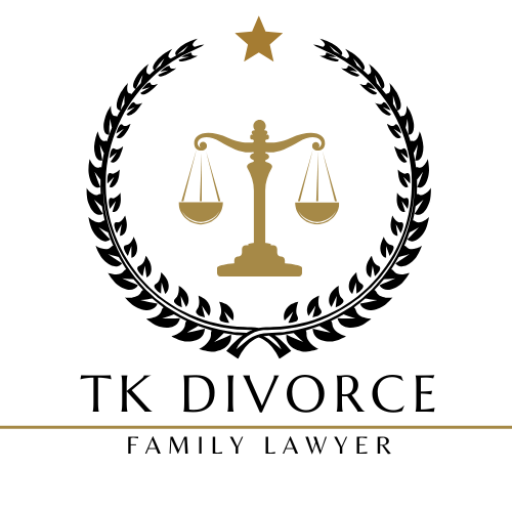Draft of Menace of False Dowry Cases Against Men: Historical Data and Trends

The issue of false dowry cases in India has become a concern over recent decades, as instances of alleged misuse of Section 498A of the Indian Penal Code (IPC) and the Dowry Prohibition Act have surfaced. While these laws were enacted to protect women from genuine cases of dowry harassment and domestic violence, misuse by some individuals has led to numerous wrongful accusations against men and their families, often resulting in arrest and extended legal battles. Below, we examine the historical data and trends on false dowry cases, offer a guide for men to protect themselves from wrongful accusations, and explore the vital role of advocates in defending men in these cases.
Menace of False Dowry Cases Against Men: Historical Data and Trends
Historical Background of Dowry Laws and Section 498A
The dowry system and dowry-related violence have historically plagued Indian society. In response, Section 498A was introduced in 1983 as part of the Indian Penal Code to specifically address cases of cruelty and harassment by husbands and in-laws due to dowry demands. It sought to protect women from domestic abuse, but the law is non-bailable and cognizable, meaning the police can arrest without a warrant, which has sometimes led to its misuse.
Data on False Dowry Cases
Several studies, court observations, and NCRB (National Crime Records Bureau) data indicate a trend of rising accusations under Section 498A, with a significant percentage resulting in acquittals, raising concerns of misuse:
- Acquittal Rates: The NCRB data shows that nearly 80-90% of cases filed under Section 498A result in acquittals, reflecting either a lack of evidence or false accusations. This suggests that many cases may not meet the threshold for proving cruelty or dowry harassment.
- Arrest Data: Between 2005 and 2012, approximately 1.7 million people, including many family members of the accused, were arrested under Section 498A. A significant number of these arrests were followed by acquittals, leading to questions about the preliminary verification process.
- Supreme Court Observations: The Supreme Court has repeatedly commented on the misuse of dowry laws, notably in cases such as Arnesh Kumar v. State of Bihar (2014), where it emphasized the need for judicial scrutiny and concrete evidence before arrests under Section 498A.
The high acquittal rates and numerous acquittals indicate that, while dowry abuse remains a problem, the law’s stringent provisions have sometimes been used to harass men, with potentially damaging consequences.
Quick Guide for Men to Protect Themselves from False Dowry Cases
Men who may find themselves vulnerable to false dowry allegations can follow this guide to mitigate risks and protect their rights:
- Document All Interactions: Keep a record of all interactions, including digital and physical communication, with your spouse and in-laws. Maintain copies of messages, emails, and call records, which can serve as evidence in the event of a dispute.
- Financial Documentation: Retain records of all financial transactions, especially those related to wedding expenses, gifts, and any other money transfers between families. This documentation can help disprove any claims of dowry exchange or demands.
- Involve Witnesses: If tensions arise, make sure that any conversations about family disagreements or financial matters are witnessed by neutral parties. Family friends or trusted relatives can later serve as witnesses if needed.
- Seek Legal Counsel Early: If you sense the possibility of a false accusation, consult a legal professional experienced in matrimonial or dowry-related cases. They can guide you on preventive steps, help you understand your rights, and provide you with options for gathering evidence.
- Avoid Provocative Communication: In stressful situations, maintain a calm tone in all communications with your spouse and her family to avoid giving grounds for claims of intimidation, threats, or cruelty.
- Consider Counselling or Mediation: If there are unresolved marital issues, suggest mediation or counseling sessions. This may not only improve the relationship but can also serve as a good-faith measure to show that you sought peaceful resolution if matters escalate.
- Prepare for Legal Contingency: If a case is filed, avoid panic and gather all documentation and evidence. Cooperate with your lawyer to prepare for court proceedings, focusing on disproving any unfounded claims.
Role of Advocates in Defending Men in False Dowry Cases
Advocates play a crucial role in helping men navigate the legal challenges posed by false dowry cases. Their expertise and knowledge can make a significant difference in both the outcome and the emotional toll of the legal battle. Below are ways in which advocates support men in these cases:
- Providing Sound Legal Advice: A well-informed advocate will advise on the client’s rights, the legal process, and the realistic outcomes based on the evidence. They ensure the client understands each step, helping reduce the stress and confusion associated with complex legal proceedings.
- Evidence Collection and Strategy Development: Advocates guide clients in collecting relevant evidence, including documentation, witnesses, and expert testimonies. They also help develop a strategic approach to defending against false claims, which may involve discrediting unfounded allegations and highlighting inconsistencies in the complainant’s narrative.
- Filing Counter-Cases: In some instances, if an advocate finds that the complaint was filed with malicious intent, they may help the client file a counter-case for defamation, mental harassment, or compensation. This can serve as a deterrent to frivolous lawsuits and can sometimes help expedite settlement discussions.
- Ensuring Compliance with Judicial Precedents: An experienced advocate will use legal precedents, such as Arnesh Kumar v. State of Bihar (2014) and other significant judgments, to request due process in investigations, helping prevent unwarranted arrests and delays.
- Negotiating Settlements or Mediation: Advocates can act as intermediaries to negotiate settlements or suggest mediation. This approach, when feasible, can provide a quicker and less adversarial resolution compared to prolonged court battles.
- Ensuring a Fair Trial and Reducing Harassment: Advocates also ensure that their clients receive a fair trial by emphasizing that all allegations must be substantiated by credible evidence. They highlight any attempt at misuse of the law, drawing attention to the fact that legal protections under Section 498A are meant for genuine cases of cruelty, not for harassment.
Key Judicial Criticism of Misuse of Dowry Laws
The judiciary has addressed the misuse of dowry laws in several key judgments:
- Arnesh Kumar v. State of Bihar (2014): The Supreme Court ruled that arrests under Section 498A should not be made automatically and emphasized that police must obtain sufficient evidence before proceeding with arrests.
- Rajesh Sharma v. State of Uttar Pradesh (2017): This ruling called for the establishment of Family Welfare Committees to screen complaints before arrests are made, though this directive was later modified. However, it highlighted the need to scrutinize accusations carefully to avoid harassment of innocent parties.
- Sushil Kumar Sharma v. Union of India (2005): The Supreme Court emphasized that while Section 498A is essential, its misuse is a “legal terrorism” that warrants safeguards to prevent harassment of innocent men.
- Preeti Gupta & Another v. State of Jharkhand (2010): The court raised concerns about the misuse of Section 498A, particularly the strain it places on both the legal system and families, urging for an amendment to ensure it isn’t used to settle personal scores.
Conclusion
False dowry cases have significant social, legal, and psychological impacts on the accused and their families. Though Section 498A and dowry laws serve an essential role in protecting women, there is an urgent need to balance this with protections against misuse to prevent undue harassment. By taking preventive measures and working with experienced advocates, men facing false dowry accusations can defend themselves more effectively. Furthermore, the judiciary and government must continue refining laws to prevent misuse while ensuring genuine victims receive justice.
